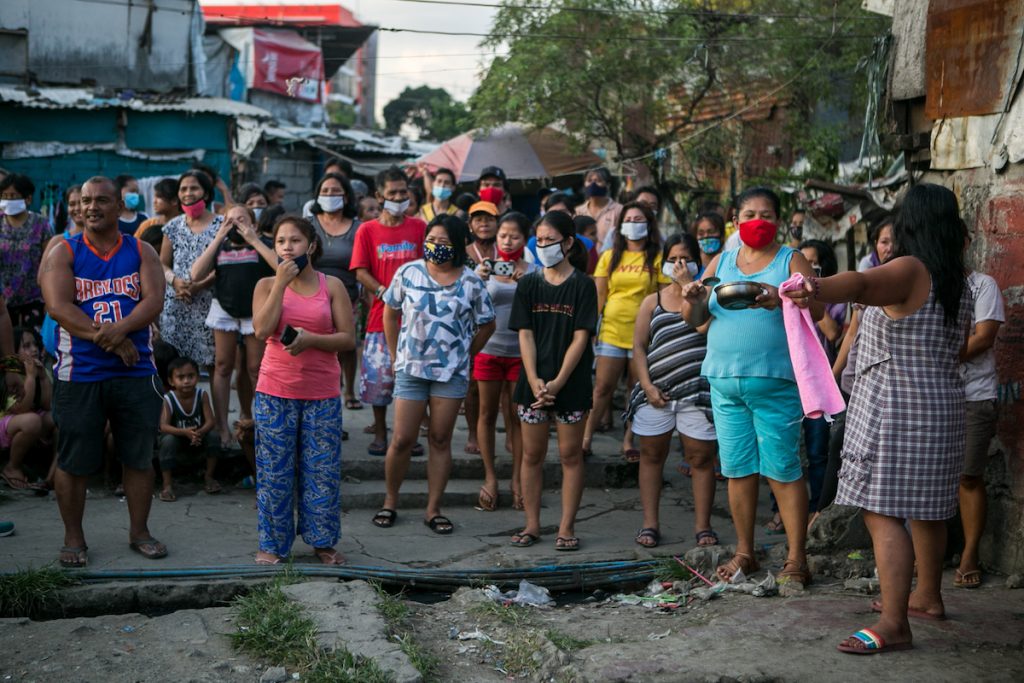Faced with the COVID-19 pandemic, governments across the globe have resorted to lockdowns of entire cities and regions to contain the spread of the deadly virus. The lockdowns invariably call for residents to stay-at-home so as to avoid passing the virus from one person to another.
The restrictions accompanying lockdowns have included the imposition of curfews, strict enforcement of social distancing, limiting movement within communities or neighborhoods to certain periods in a day, closing down business establishments except groceries, pharmacies, banks and other essential services, prohibiting gatherings of more than 10 people, and so on.
In the Philippines, the implementation of enhanced community quarantine — a sugar-coated term for a lockdown — starting on March 15 to run for a month but extended for another two weeks until April 30, appears too heavy-handed and draconian, with reports of disregard for human rights one too many to ignore.
And there’s the rub: you cannot solve a health problem by unleashing the coercive apparatus of the state to compel unthinking obedience.
In other words, do we really need draconian measures to contain the COVID-19 pandemic?
COVID-19 is a highly infectious disease spread through person-to-person contact. Lockdowns can be effective in controlling the disease, but the more important aspect is strengthening the emergency response system and the entire healthcare system that’s been overwhelmed by the sheer number of cases.
How? As suggested by a Chinese medical team that visited the country to give advice on how we can control the pandemic, the government should build more isolation facilities for suspected and probable coronavirus carriers, apart from carrying out mass testing.
We must strike a balance between enforcing the law to achieve a public good, which is to prevent the spread of the disease, and showing compassion for people, especially the poor, already facing many difficulties even without COVID-19.
The lockdown of Luzon in March appears to have been hastily prepared, with checkpoints manned by the police and soldiers armed to the teeth preventing food and other supplies from entering Metro Manila.
Security forces have also subjected minors to absurdly abusive treatment for violating curfew and quarantines rules. In one case in Laguna province, five minors arrested for curfew violation were confined in a dog cage.
In the adjacent province of Cavite, two children were locked up in a coffin on March 26 as punishment for a similar violation. In Tacloban City, a mother was arrested on March 24 for allowing her children to play outdoors.

The United Nations Special Rapporteur on the Rights to Freedom of Peaceful Assembly and of Association, Clément Nyaletsossi Voule, has called on States not to use emergency declarations during the COVID-19 crisis to impose wholesale restrictions on such freedoms.
“No country or government can solve this health crisis alone and I am concerned about worrying trends and limitations on civil society’s ability to support an effective COVID-19 response …. Where new laws or regulations are adopted, any limitations on rights imposed must adhere to the principles of legality, necessity and proportionality,” he pointed out.
UN High Commissioner for Human Rights Michelle Bachelet has appealed to governments to put human rights at the center of their response to the public health emergency.
“COVID-19 is a test for our societies, and we are all learning and adapting as we respond to the virus. Human dignity and rights need to be front and center in that effort, not an afterthought,” Bachelet said.
Independent experts of the UN have also weighed in on the issue.
“While we recognize the severity of the current health crisis and acknowledge that the use of emergency powers is allowed by international law in response to significant threats, we urgently remind states that any emergency responses to the coronavirus must be non-discriminatory” and “should not function as a cover for repressive action under the guise of protecting health nor should it be used to silence the work of human rights defenders,” said the experts who are part of the Special Procedures of the Human Rights Council.
I share the sentiment of those who say that the Philippine government must prioritize a public health approach and science-based response over a police and military-enforced community quarantine, through massive investment in public health services, and ensuring access by the vulnerable sectors to the public health system.
After some urban poor elements launched a small protest action in late March to draw attention to the lack of government support for their plight, police promptly dispersed them and filed charges in court for disrespecting their authority. That led President Rodrigo Duterte to say in a press conference afterwards that his order to the police and the military is: “If there is trouble … shoot them dead.”
Ernesto M. Hilario writes on political and social justice issues for various publications in the Philippines. The views and opinions expressed in this article are those of the author and do not necessarily reflect the official editorial position of LiCAS.news.






